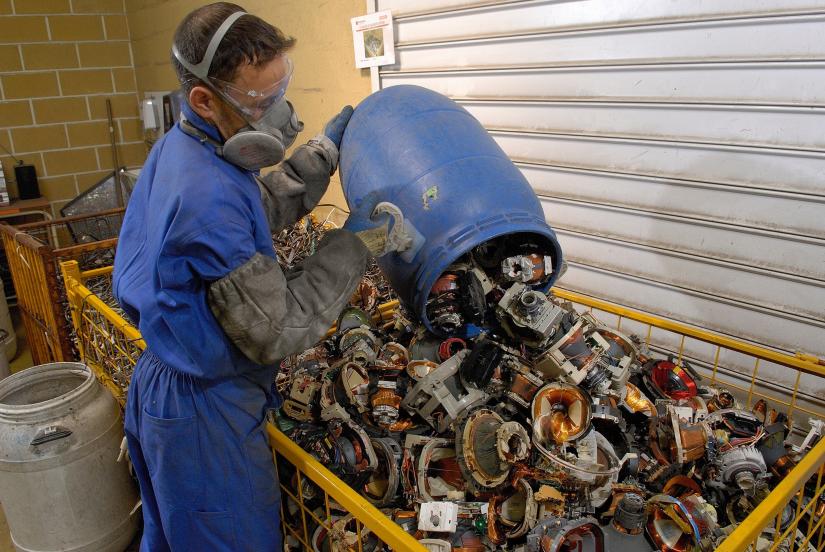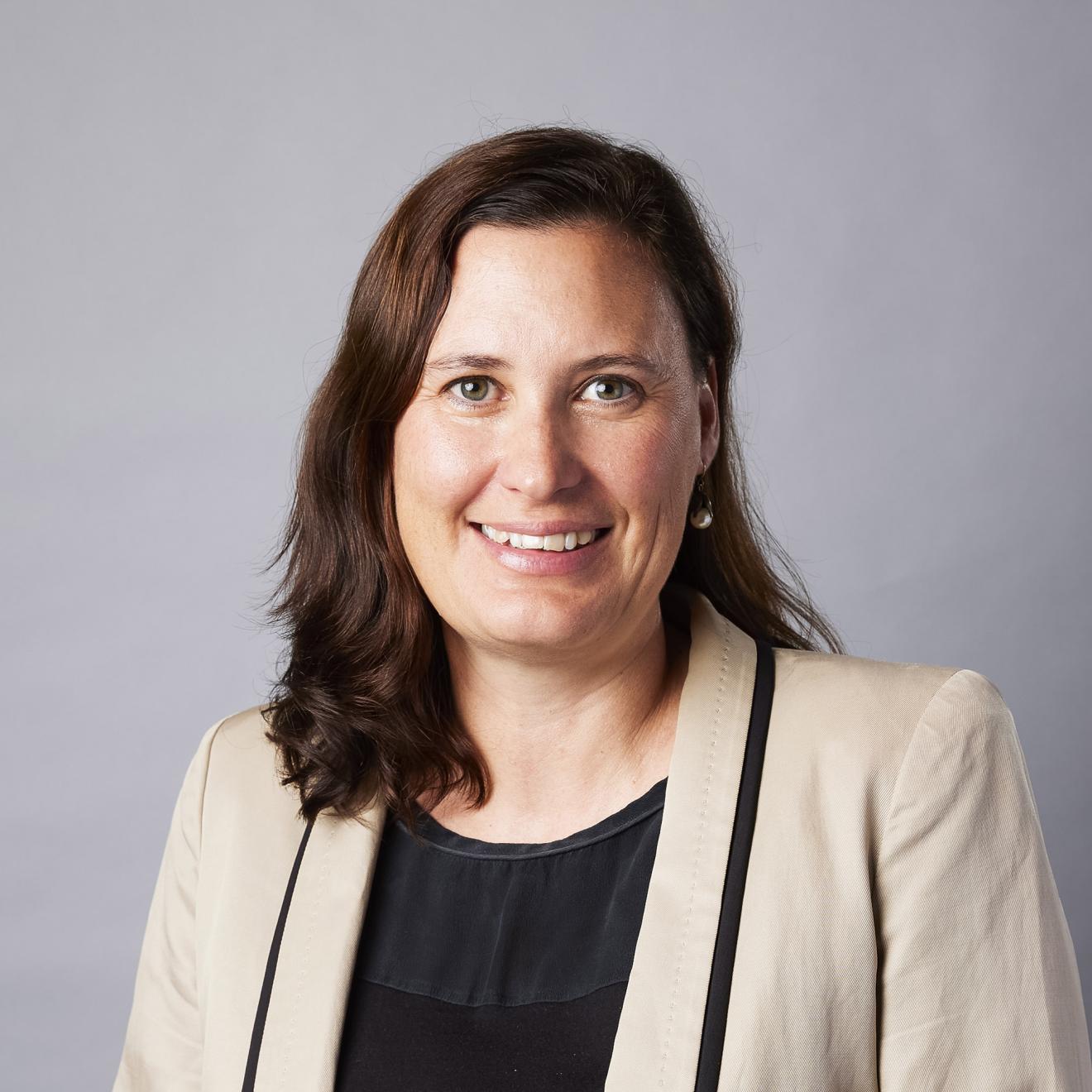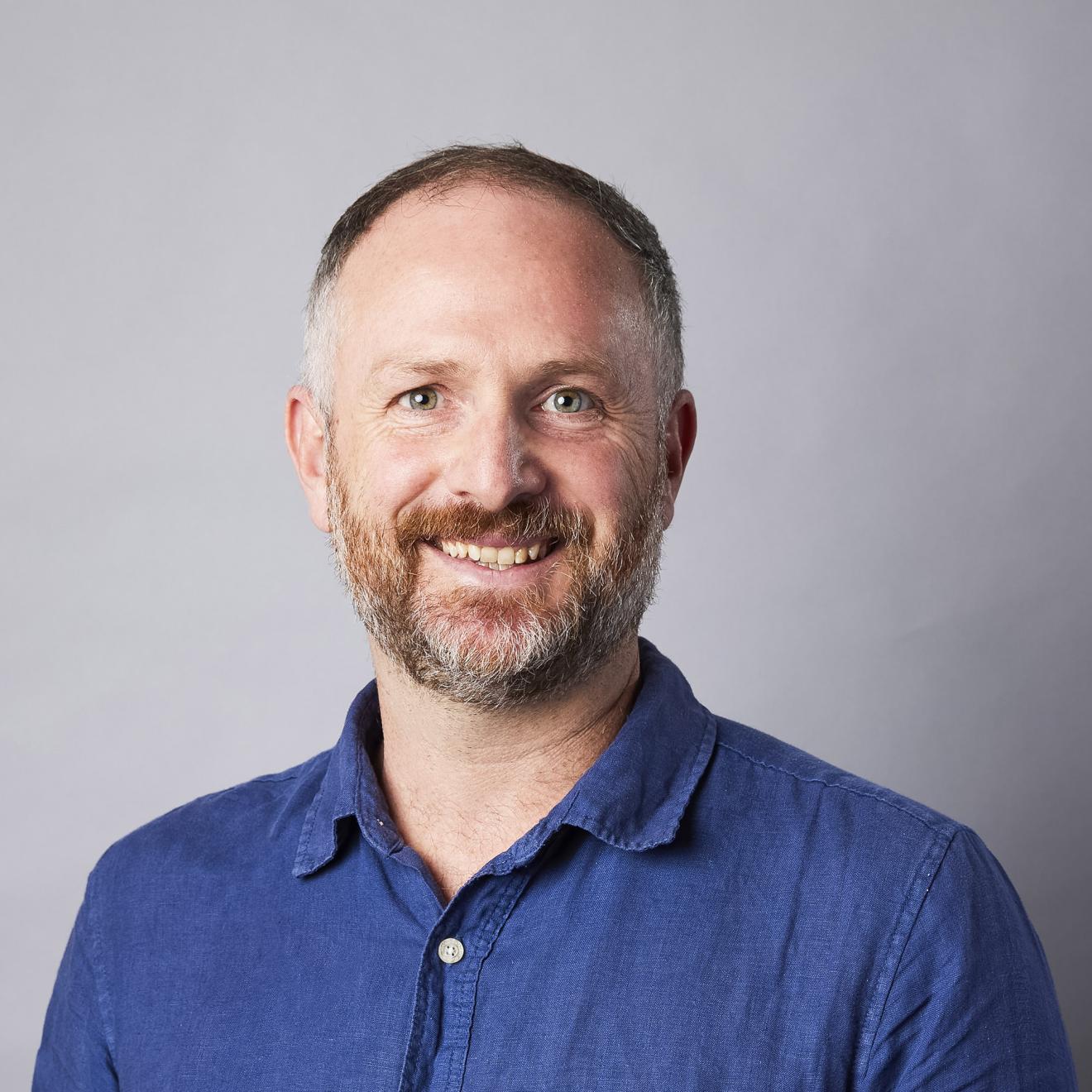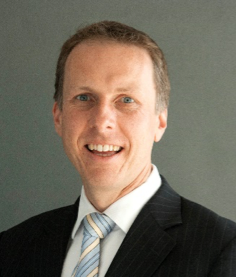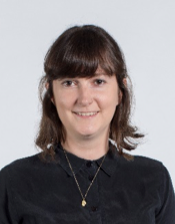Electronic waste (e-waste) is a global problem that shadows the rapid evolution of technology. Vast amounts of frequently replaced consumer goods such as mobile phones, televisions, laptops and tablets make up one of the fastest growing sources of waste and add to the significant burden of landfill. The volume of waste metal (including copper, aluminium, and iron) generated in Australia alone is equivalent to about 50 per cent of the country’s metal consumption and could be ‘mined’ from e-waste, reducing landfill and creating employment opportunities in the process. As one of the world’s primary exporters of metals, Australia also has the potential to influence global supply chains by applying circular economy principles, encouraging recycling and responsible sourcing.
The Wealth from Waste (WfW) cluster of research projects was a three-year, $9-million international program led by ISF in partnership with CSIRO from 2009 to 2012. The program brought together Monash University, the University of Queensland, Swinburne University of Technology, and Yale University alongside an international reference panel that provided strategic direction and peer review. The program aligned directly with the United Nations’ Sustainable Development Goal 12: Responsible Production and Consumption. As well as leading the program, ISF also led two of its four projects.
The Wealth from Waste cluter work took place at the time that circular economy principles really started to take hold in the industry with policymakers... [it] fed directly into the early growth of CE thinking.
— Samantha Sharpe, Institute for Sustainable Futures
Early thinking about a circular economy for metals
The first of these two, Business Models for Future Value Chains (Program 3), developed circular economic business models for Australian metal and minerals reuse/recycling. The project looked at how responsible metal management at that time either promoted or constrained the capacity to create further value from recycled metals. It also conducted an analysis of the labour market and the required skills – including how transferable skills would be from primary to recycling sectors – and developed occupational profiles of the future recycling industry amongst other outcomes. One of the main benefits of this work was in its timing, according to ISF’s Co-Project Leader, Dr Samantha Sharpe:
“The Wealth from Waste cluster work took place at the time that circular economy (CE) principles really started to take hold in industry and with policymakers; looking at different business model types and opportunities therefore fed directly into the early growth of CE thinking.”
One of the main underpinnings of a circular economy is that it relies upon collaboration and partnerships along the entire supply chain to succeed.
“Our work highlighted the need for all players to work together and encouraged governments – particularly the NSW State Government – to step into an innovation catalyst role in trying to establish the environment for CE business models and partnerships.”
The second project led by ISF, Transition Pathways for Leadership in Resources Stewardship (Program 4) identified the ways by which Australia could generate income from e-waste and outlined a range of transition pathways towards closed-loop minerals management. The project’s aim was to draw together the findings of the previous three projects and to make recommendations to improve public policy in support of recycling and reuse of metals, and to emphasise the broader opportunities in a future circular economy beyond metal and waste.
Taking it to the world
Following the Wealth from Waste research, ISF extended its profile in this space by co-hosting the World Resources Forum (WRF) Asia-Pacific in Sydney in 2015. This was the first time this forum was held in Australia. The Forum’s objective was to showcase the cluster of research, promote circular economy opportunities, raise awareness and stimulate policy discussions and business interest. In addition to hosting the Forum, ISF launched the Action Agenda on Resource Productivity and Innovation, which aimed to ‘drive a new wave of responsible prosperity for Australia in the Asian century’.
As ISF’s Dr Nick Florin, Research Director – Resource Stewardship, and Deputy Lead of the Wealth from Waste cluster recalls:
“The 2015 WRF Asia-Pacific Forum was the first public forum in Australia that highlighted the potential of a circular economy. At the time, the concept was not yet in focus in Australia as either a policy priority or an opportunity for innovative businesses. The Forum helped draw attention to this opportunity, and by bringing together researchers, policymakers, business and community leaders it sparked new partnerships and collaborations necessary to transition to a circular economy.”
From then to now…
Almost 10 years down the track, the circular economy (CE) approach has come a long way. After initially applying CE thinking to above-ground metals, ISF was able to transfer these principles to the management of other sectors and products, including plastics, batteries and PV panels, and the environmental sustainability of the textiles and garment sector in Asia.
“The work of the WfW cluster gave us a good foundation on which to build more sophisticated understanding of circularity. This included considering the employment implications of circularity, and how to manage unintended consequences such as the rise in export of recyclable products, and poor labour conditions of many workers in Asia who participate in the global supply chains of the circular economy,” reflects Dr Samantha Sharpe.
The cluster of research projects brought together a range of players to create a groundswell of change, and these vital relationships have endured. Prior to the WfW work, circular economy thinking was niche and fragmented. Now there is research driving value recovery from all sources. The zero-waste mine is not far off.
— Anna Littleboy, formerly CSIRO
The University of Queensland’s Professor Anna Littleboy (formerly Research Director of CSIRO’s Minerals Downunder Flagship) agrees that the WfW work played a catalytic role in promoting circular thinking:
“The cluster of research projects brought together a range of players to create a groundswell of change, and these vital relationships have endured. Prior to the WfW work, circular economy thinking was niche and fragmented. Now there is research driving value recovery from all sources. The zero-waste mine is not far off.”
Most Australian state and territory governments have now established circular economic policies that encompass a range of products and materials. In New South Wales, ISF assisted the State Government with the development of its circular economy policy statement, Too good to Waste (February 2019). The statement defines the Government’s role in implementing circular economy principles across the state, and the Government has since expressed its commitment to resource efficiency and waste reduction throughout supply chains in its new NSW Procurement Policy, released in February 2021.
Having established a trusted working relationship with ISF, the NSW Government commissioned ISF to conduct a scoping study for a Photovoltaic Panel and Battery System Reuse and Recycling Fund, published in 2020. This study led to the initiation of this Fund which sought expressions of interest to establish ‘collaborative ‘whole-of-supply chain’ projects that trial managing end-of-life solar panels and/or battery systems within a circular economy framework’.
The impact of the early CE thinking of programs such as Wealth from Waste in Australia is evident - in little more than a decade, the circular economy approach is on its way to becoming the new normal.
Researchers
-
Associate Professor & Research Director
-
Associate Professor & Research Director
-
Professor and Deputy Director
-
Research Principal
Years
2009–2012
Client
CSIRO
Partners
Monash University
University of Queensland
Swinburne University of Technology
Yale University

